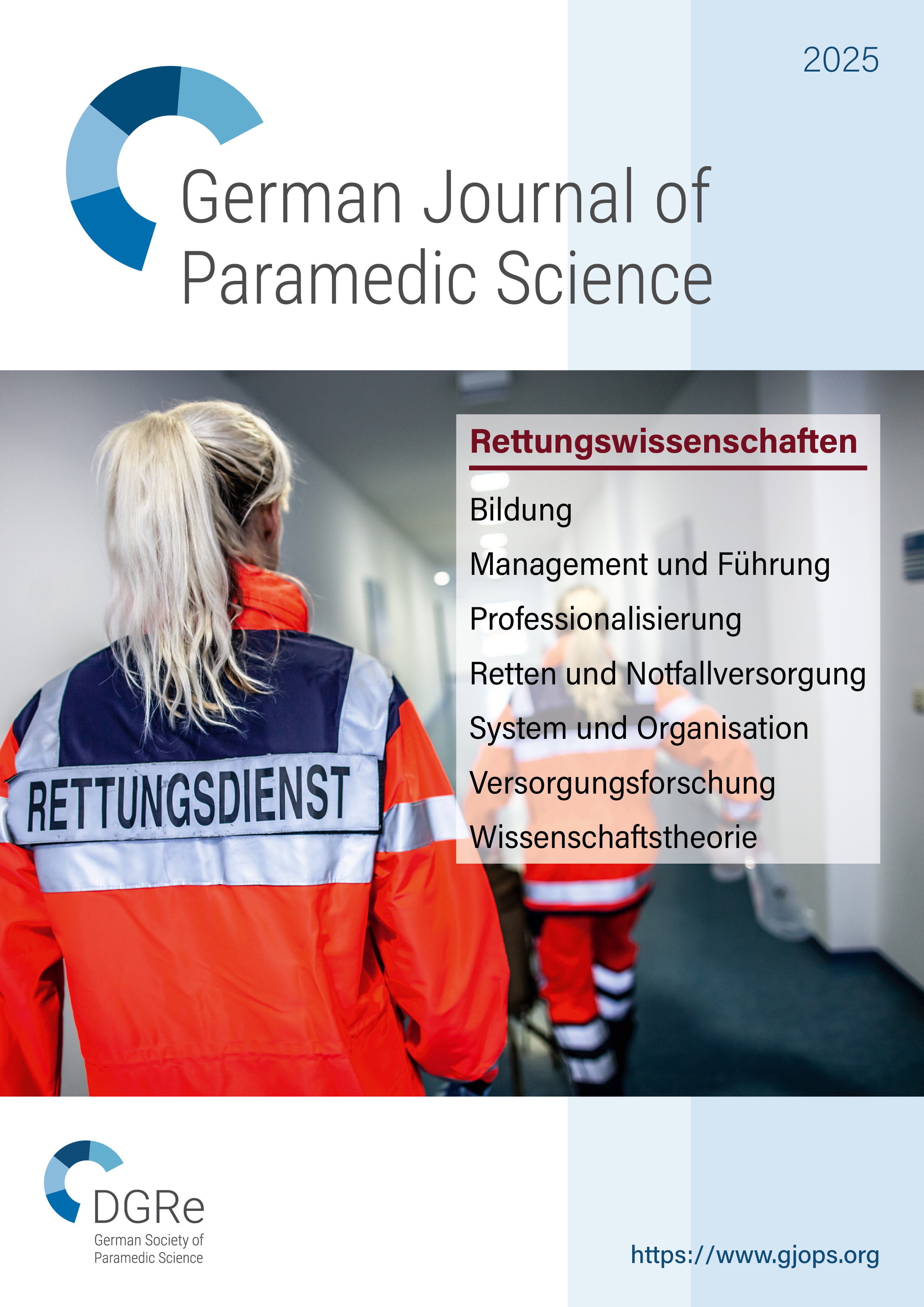Short training courses and lay resuscitation
The effect of short training courses as part of the Heart and Health Day in Gera
DOI:
https://doi.org/10.25974/gjops.v2i1.36Keywords:
First aid measures, Lay resuscitation, Short training course, Cardiopulmonary ResuscitationAbstract
Abstract
Background: In Germany, around half of all cardiovascular arrests are witnessed by laypersons. Against this background, the level of knowledge of the population of Gera in cardiopulmonary resuscitation was investigated and a short training course was conducted.
Methods: The data was collected as part of the Gera Heart and Health Day 2023. Using a questionnaire, randomly selected visitors to the event were asked about their level of knowledge of resuscitation measures. These visitors were then asked to take part in a short training session to evaluate their practical skills. The quality of cardiopulmonary resuscitation was recorded using the QCPR software.
Results: Before the short training course, the participants had limited knowledge and practical skills in resuscitation measures. Significant improvements were observed after the short training course in cardiopulmonary resuscitation. The resuscitation cycle was adhered to more reliably, the necessary pressure depth was achieved significantly more often, the chest was correctly released significantly more often and the resuscitation frequency was correct more often.
Discussion: The participants in the survey were either young (18-30 years, 39.2%) or older people (61-90 years, 41.2%). In the second group in particular, the last first aid training course was more than 30 years ago. Accordingly, their theoretical knowledge and practical skills were very low before the short training course. The short training course reactivated existing knowledge, which explains the significant improvement in the performance of cardiopulmonary resuscitation.
Downloads
Published
Issue
Section
Categories
License
Copyright (c) 2025 Stefanie Vogel, Alexandra Stahlberg, Robert Leschowski, Daniel Lätsch, Thorsten Grätz, Maximilian Schochow

This work is licensed under a Creative Commons Attribution-ShareAlike 4.0 International License.
We publish open access under the Creative Commons BY-SA 4.0 licence (https://creativecommons.org/licenses/by-sa/4.0/?ref=chooser-v1).
Content may be redistributed and reprocessed (including for commercial purposes), provided that the original source is cited and the same licence conditions apply.






